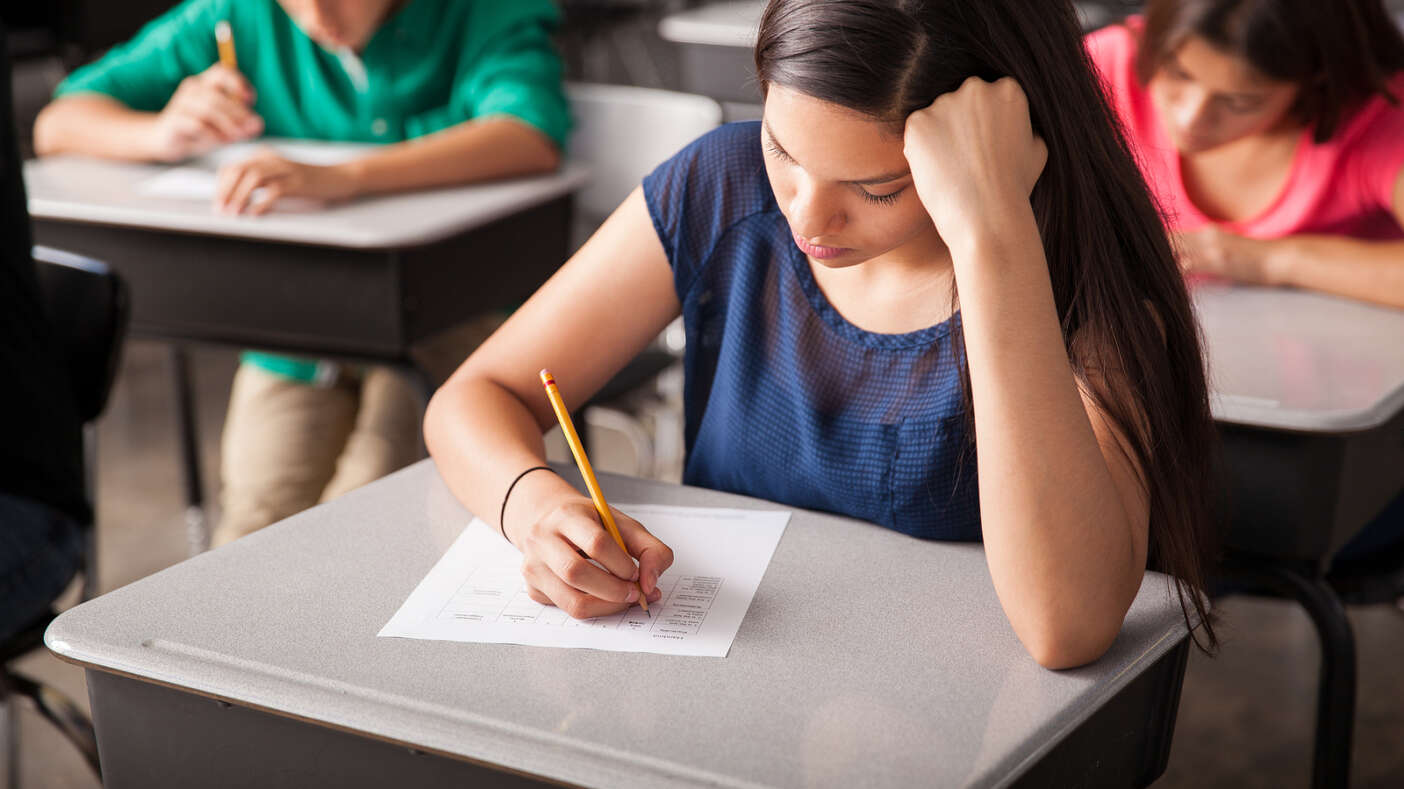Helping Your Socially Anxious Teen Return to School Comfortably
For teens who struggle with social anxiety, going back to school after the summer months can be particularly fraught. They may be encountering social situations that are uncomfortable for them and interacting with people who make their social anxiety worse. Add to that the pressures that social media puts on all young people, and you have a recipe for very high stress.
In this article, we will talk about what social anxiety is, how it affects teenagers, and how you can help your teenager or your teenaged students make the transition to school days easier.
Understanding Social Anxiety in Teens
Social anxiety can affect people at any age, but it can be especially challenging for young people today.
What is Social Anxiety?
Social anxiety is a diagnosable mental health disorder that makes it difficult for people to interact with others. Stemming from a fear of being judged, social anxiety can cause sufferers to avoid social situations in person and even virtually. People with social anxiety may also avoid feedback about themselves, such as constructive criticism or friendly advice.
Although many people are hesitant to jump into social situations, social anxiety is more severe, causing the sufferer to miss out on important occasions and opportunities for growth. For some people with social anxiety, even eating or drinking in front of other people can be debilitating.
What Are the Symptoms of Social Anxiety?
In the socially anxious person, you might notice:
- Stress and worry about social situations.
- Preoccupation with negative feedback.
- Belief that others don’t like them, in the absence of confirming information.
- Excessive worry about rejection.
- Disproportionate reactions to social rejection or perceived social rejection.
- Physical symptoms such as sweating, stomachaches, headaches, trembling, or muscle tension when thinking about or engaging in social interactions.
How Social Anxiety Affects Teens
Teenagers can be more severely affected by social anxiety for several reasons:
- Teens can’t avoid social settings while they’re in school. Adults have a great deal more flexibility in choosing their environments, but teens are required to attend classes.
- Social media plays an enormous role in the lives of teenagers, and their peers can be particularly cruel in the way they use it.
- Teenagers are in the process of developing their social skills and building their first social networks. This is much harder for people with social anxiety.
- Academic performance may suffer if you avoid feedback and are hesitant to participate in classroom discussions and team-based activities.
- Social anxiety can erode your teen’s confidence and self-esteem by making them feel that they’re unworthy, especially in comparison to their peers.
What Are the Treatments for Social Anxiety Disorder?
Fortunately, there are some excellent treatment options for social anxiety. They include:
- Psychotherapy or counselling which could take the form of Cognitive-Behavioural Therapy (CBT), Exposure Therapy, or Acceptance and Commitment Therapy (ACT). Each of these styles of therapy takes a different approach:
- CBT identifies and challenges negative thought patterns, seeking to replace automatic negative thoughts and reactions with thoughts that are more consistent with objective reality. CBT is very commonly used to treat anxiety disorders and excessive worry.
- Exposure therapy entails gradually exposing people to something they tend to avoid and coaching them on how to handle their reactions so that they become less distressing.
- ACT focuses on techniques such as mindfulness to encourage accepting discomfort as part of the process of growth. By combining mindfulness and relaxation with a focus on the individual’s values and goals, practitioners help their clients move forward with greater purpose and less distress.
- Psychopharmaceuticals such as antidepressants, anti-anxiety medications, and beta-blockers can be helpful, even on a temporary basis. Consult with your family doctor for guidance on these medications. Some over-the-counter medications and supplements can also be helpful; don’t overlook those, but do your research on them beforehand.
- Support groups and group therapy can help teens understand that they are not alone. Group settings also give socially anxious teens an opportunity to practice social behaviours in a supportive environment.
How to Support Your Socially Anxious Teen
Parents can feel lost when faced with a teenager’s reluctance to engage in social activities or to return to school. Here are some ways to help:
Learn About Social Anxiety
Read about this condition on trusted online sites and visit your local library for resources. For guidance, there are associations and organizations dedicated to the study of anxiety disorders. They are excellent resources for people who aren’t sure where to get information. By getting a better understanding of social anxiety, its causes and treatments, you will have a good head start on helping your teen.
Create a Supportive Environment
Acceptance and love should be unconditional at home. Foster an environment that avoids criticism, teaches children to work with feedback, and allows them to make mistakes they can learn from.
Encourage Open Communication
Use active listening skills to encourage your teen to talk about their fears. If your teen is anxious about returning to school, validate their feelings and allow them to talk them through. Avoid judging them for feeling anxious, as this will only exacerbate the problem.
Get Them into Journaling
Keeping track of your feelings and the situations that trigger them can go a long way toward developing awareness. That can further lead to your teen’s improved understanding of their own condition and why they react the way they do. Buying them a nice journal and a pack of their favourite pens can help get them going. There are many diaries with prompts for people with anxieties, which may be useful for your teen.
Consider Counselling
Counselling has been shown to be extremely helpful for social anxiety disorder. By offering this resource, you’re also showing your teen that you care about their mental health and that you take their concerns seriously.
Finding the right type of therapy and the right mental health care professional can take a few tries, so don’t give up! Not every combination of client, therapist, and therapeutic approach is a match, but that doesn’t mean that it’s not right for your teen.
Parenting can be very stressful, especially if you have a stressed-out teen. Don’t neglect your own mental health and your self-care needs as you navigate this challenging time; counselling is not only for people with a diagnosable disorder—it can also help you to talk through your thoughts and feelings about your teen and their struggles.
The team at Kari Walton Counselling understands the difficulties of parenting in the modern context. We can help both your teen and you make the transition to school days more manageable. We offer a wide range of treatment options, including person-centred counselling, psychodynamic therapy, humanistic counselling, integrative therapy, Cognitive-Behavioural Therapy, Dialectical Behaviour Therapy, hypnotherapy, group therapy, neurofeedback, and couples and family counselling in a safe and accepting environment.
Contact us today to make an appointment. Let’s work together to find the roadblocks on your journey to more intentional self-care, relating, and parenting.

